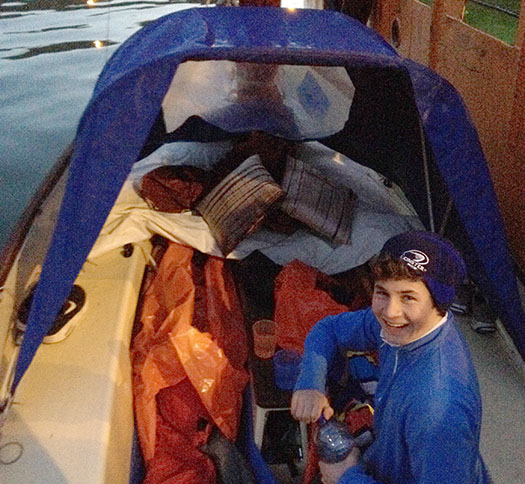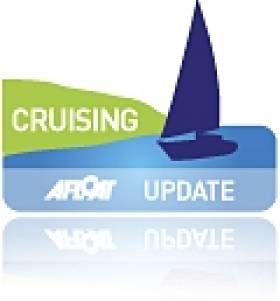Displaying items by tag: Ogden
#luggerroundireland – Two brothers will begin a circumnavigation of Ireland in an 18ft–Drascombe Lugger dinghy, Lughnasa this June bank holiday. Fergus and Nathaniel Ogden will set off on the c. 1000 mile voyage from Baltimore, West Cork. Hoping to achieve between 15-30 miles a day, they will live on-board the boat, calling into various stopovers along the coast - beginning with Crookhaven.
At an average speed of 3-4 knots, this won't be the fastest circumnavigation of Ireland ever achieved, but the Drascombe's rugged build quality makes it a fine boat for the job, and will be the first time an open Lugger has attempted to sail around Ireland.
They anticipate the voyage to take about a month, though the Atlantic conditions off the West Coast will play an important role in their journey time.
Aged 16 and 22, this will be the brother's longest voyage together. Personal space will take on a new meaning for the lads with cramped living on-board, and tensions are sure to run high as the 18 feet of Drascombe becomes home. Balmy days spent rolling on the long and gentle swells in the baking Irish sun will help reduce some of this pressure, however and provide plenty of opportunities for photo and video footage of the voyage. With none of the luxuries found inside a cabin, Facebook and website updates will be done as often as possible from their overnight stops.
The Ogdens are undertaking this challenge to raise funds for the RNLI, who are officially supporting their adventure.
By doing this they would like to help raise awareness for safety at sea as the number of lifeboat callouts for leisure craft has been increasing in recent years.
To keep up with the Ogden brother's progress visit their website where you can make a donation to the RNLI and follow their blog.

onboard the Lughnasa
ROUGH ROUTE PLAN, NOT CONSIDERING ALL CONTINGENCIES. LEAVING BALTIMORE AND HEADING WEST
Crookhaven
Castletown Bearhaven
Ballycrovane Harbour
Derrynane Harbour
Knightstown, Valentia
Dingle
Brandon
Kilrush/Carrigholt
Inishmore
+ /- Galway, Roundstone, Clifden, Cleggan
Inishbofin
Clare Island
Belmullet
Kilcummin
Rosebeg
Tory
+/- Lough Swilly Stopover
Portballintrae
Rathlin / Ballycastle
Donaghdee
Carlingford
Ardglass
Howth/Dun Laoghaire
Wicklow
Wexford
Kilmore Quay
Dungarvan
+/- Youghal
Cork Harbour - Crosshaven
Kinsale
Clonakilty
Glandore / Castletownshend
Baltimore





























































